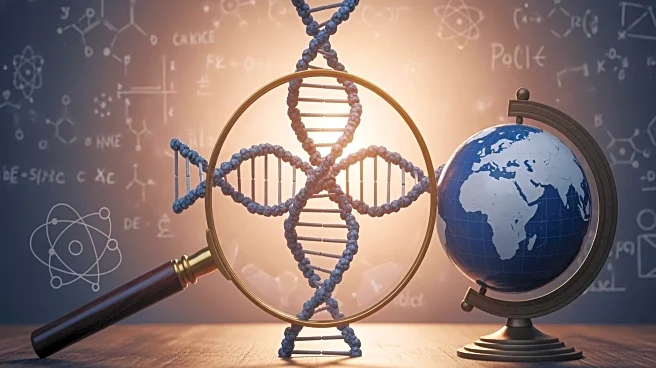What's Happening?
Linus Pauling, a renowned scientist and humanitarian, is celebrated for his contributions to chemistry and peace activism. He is the only person to receive two unshared Nobel Prizes, one for Chemistry in 1954 and another for Peace in 1962. Pauling's work
in quantum chemistry and molecular biology has been foundational, influencing generations of scientists. His advocacy for nuclear disarmament and nutritional health, particularly vitamin C, has left a lasting impact on public health and policy.
Why It's Important?
Pauling's scientific achievements have profoundly shaped modern chemistry and molecular biology, providing a basis for advancements in these fields. His peace activism, particularly against nuclear testing, played a crucial role in the signing of the nuclear test ban treaty, highlighting the power of scientific advocacy in political spheres. His work in nutritional health has sparked ongoing debates and research into the role of vitamins in disease prevention and health promotion.
Beyond the Headlines
Pauling's commitment to humanitarian causes, despite facing criticism and political challenges, underscores the ethical responsibilities of scientists to engage with societal issues. His advocacy for peace and health continues to inspire movements for global health and disarmament. The Linus Pauling Institute at Oregon State University carries forward his legacy, focusing on research in micronutrients and disease prevention.















